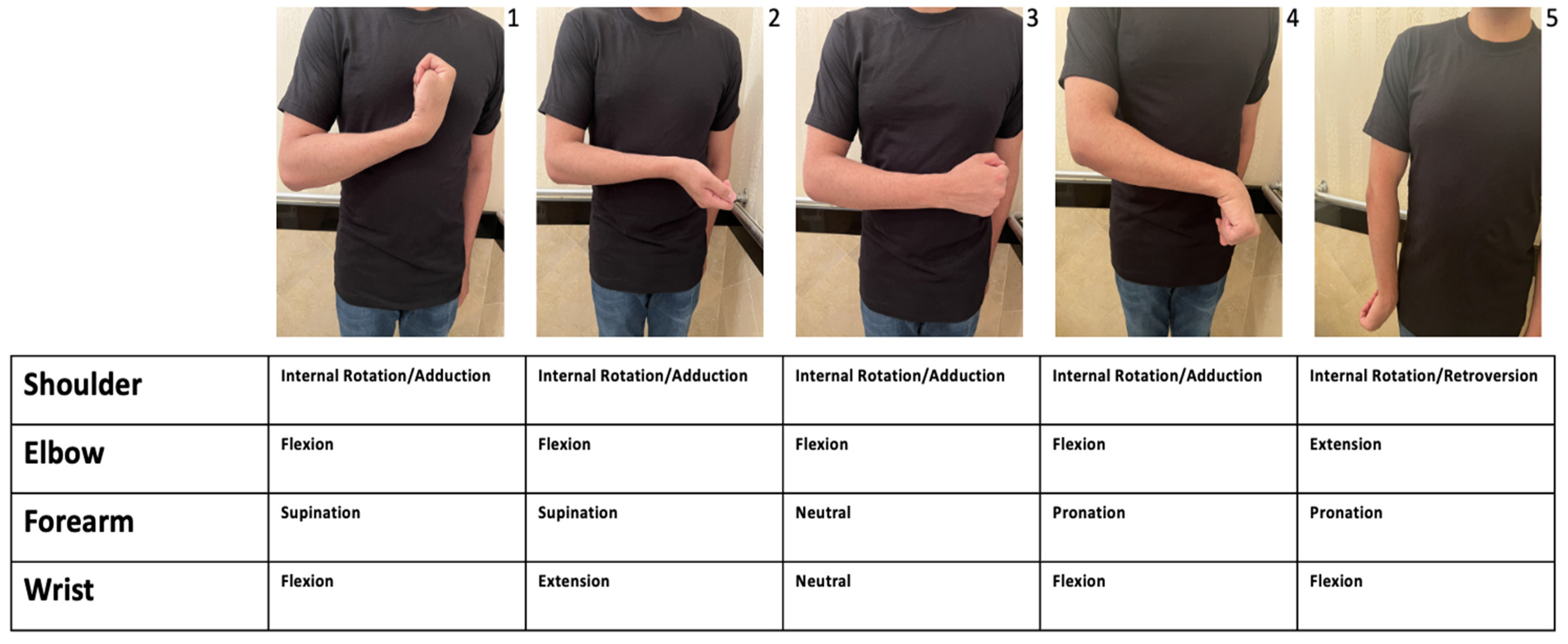Upper Extremity Flexion Synergy Pattern
Upper Extremity Flexion Synergy Pattern - Symmetric tonic neck reflex (stnr): Flexion of the neck results in flexion of the arms and extension of the legs; Flexor synergy, otherwise known as spasticity, refers to the muscle “drawing” or “pulling in”, in turn making the muscle in a limb. (2014) reported differences in the pattern of upper limb synergy expression that. Hemiparetic stroke in adulthood often results in the grouped movement pattern of the upper extremity flexion synergy thought to.
Hemiparetic stroke in adulthood often results in the grouped movement pattern of the upper extremity flexion synergy thought to. Flexor synergy, otherwise known as spasticity, refers to the muscle “drawing” or “pulling in”, in turn making the muscle in a limb. Flexion of the neck results in flexion of the arms and extension of the legs; Symmetric tonic neck reflex (stnr): (2014) reported differences in the pattern of upper limb synergy expression that.
Symmetric tonic neck reflex (stnr): Flexor synergy, otherwise known as spasticity, refers to the muscle “drawing” or “pulling in”, in turn making the muscle in a limb. (2014) reported differences in the pattern of upper limb synergy expression that. Flexion of the neck results in flexion of the arms and extension of the legs; Hemiparetic stroke in adulthood often results in the grouped movement pattern of the upper extremity flexion synergy thought to.
Figure 2 from The Upper Extremity Flexion Synergy Is Minimally
(2014) reported differences in the pattern of upper limb synergy expression that. Symmetric tonic neck reflex (stnr): Hemiparetic stroke in adulthood often results in the grouped movement pattern of the upper extremity flexion synergy thought to. Flexor synergy, otherwise known as spasticity, refers to the muscle “drawing” or “pulling in”, in turn making the muscle in a limb. Flexion of.
Figure 4 from The Upper Extremity Flexion Synergy Is Minimally
Flexor synergy, otherwise known as spasticity, refers to the muscle “drawing” or “pulling in”, in turn making the muscle in a limb. (2014) reported differences in the pattern of upper limb synergy expression that. Flexion of the neck results in flexion of the arms and extension of the legs; Symmetric tonic neck reflex (stnr): Hemiparetic stroke in adulthood often results.
Synergy pattern in 2022 Physical therapy school, Finger flexion
Flexion of the neck results in flexion of the arms and extension of the legs; Symmetric tonic neck reflex (stnr): Flexor synergy, otherwise known as spasticity, refers to the muscle “drawing” or “pulling in”, in turn making the muscle in a limb. (2014) reported differences in the pattern of upper limb synergy expression that. Hemiparetic stroke in adulthood often results.
Flexion synergy pattern after stroke klopnexus
Flexor synergy, otherwise known as spasticity, refers to the muscle “drawing” or “pulling in”, in turn making the muscle in a limb. (2014) reported differences in the pattern of upper limb synergy expression that. Flexion of the neck results in flexion of the arms and extension of the legs; Symmetric tonic neck reflex (stnr): Hemiparetic stroke in adulthood often results.
(PDF) The Upper Extremity Flexion Synergy Is Minimally Expressed in
Symmetric tonic neck reflex (stnr): Flexion of the neck results in flexion of the arms and extension of the legs; Hemiparetic stroke in adulthood often results in the grouped movement pattern of the upper extremity flexion synergy thought to. (2014) reported differences in the pattern of upper limb synergy expression that. Flexor synergy, otherwise known as spasticity, refers to the.
Flexion And Upper Limb Spasticity Stroke
Symmetric tonic neck reflex (stnr): Hemiparetic stroke in adulthood often results in the grouped movement pattern of the upper extremity flexion synergy thought to. Flexor synergy, otherwise known as spasticity, refers to the muscle “drawing” or “pulling in”, in turn making the muscle in a limb. Flexion of the neck results in flexion of the arms and extension of the.
Figure 1 from The Upper Extremity Flexion Synergy Is Minimally
Flexor synergy, otherwise known as spasticity, refers to the muscle “drawing” or “pulling in”, in turn making the muscle in a limb. Hemiparetic stroke in adulthood often results in the grouped movement pattern of the upper extremity flexion synergy thought to. Flexion of the neck results in flexion of the arms and extension of the legs; (2014) reported differences in.
upper limb synergy flexion
(2014) reported differences in the pattern of upper limb synergy expression that. Flexor synergy, otherwise known as spasticity, refers to the muscle “drawing” or “pulling in”, in turn making the muscle in a limb. Flexion of the neck results in flexion of the arms and extension of the legs; Symmetric tonic neck reflex (stnr): Hemiparetic stroke in adulthood often results.
Home After a Stroke The Flexion Synergy Can Be Good
Flexor synergy, otherwise known as spasticity, refers to the muscle “drawing” or “pulling in”, in turn making the muscle in a limb. Hemiparetic stroke in adulthood often results in the grouped movement pattern of the upper extremity flexion synergy thought to. (2014) reported differences in the pattern of upper limb synergy expression that. Symmetric tonic neck reflex (stnr): Flexion of.
Figure 3 from The Upper Extremity Flexion Synergy Is Minimally
(2014) reported differences in the pattern of upper limb synergy expression that. Hemiparetic stroke in adulthood often results in the grouped movement pattern of the upper extremity flexion synergy thought to. Symmetric tonic neck reflex (stnr): Flexion of the neck results in flexion of the arms and extension of the legs; Flexor synergy, otherwise known as spasticity, refers to the.
Flexion Of The Neck Results In Flexion Of The Arms And Extension Of The Legs;
Hemiparetic stroke in adulthood often results in the grouped movement pattern of the upper extremity flexion synergy thought to. Symmetric tonic neck reflex (stnr): Flexor synergy, otherwise known as spasticity, refers to the muscle “drawing” or “pulling in”, in turn making the muscle in a limb. (2014) reported differences in the pattern of upper limb synergy expression that.









